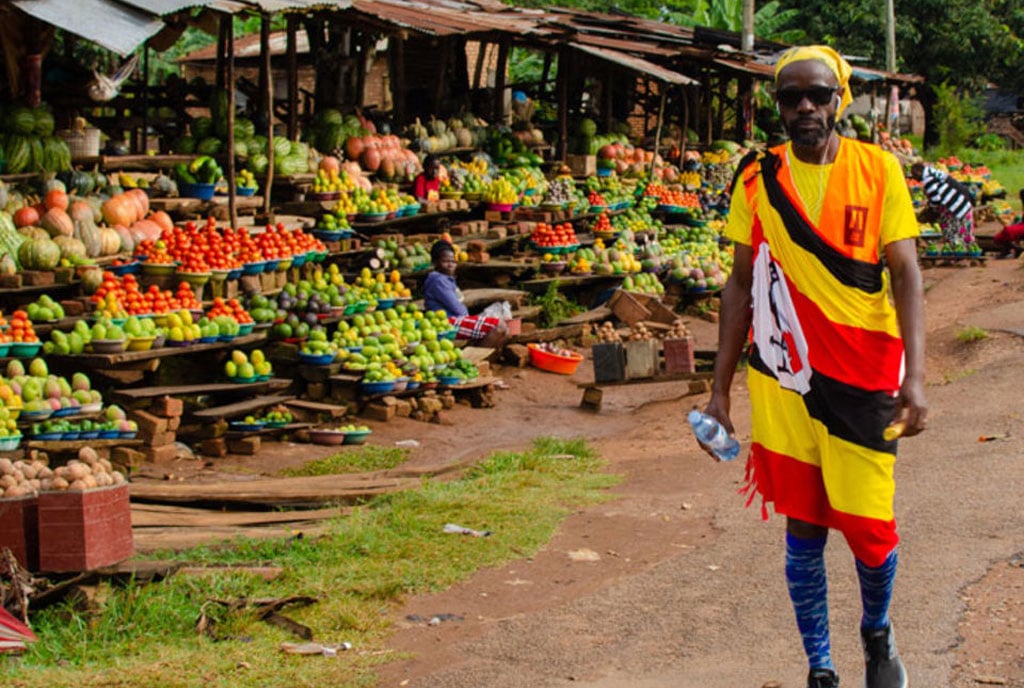Be a responsible passenger

What you need to know:
- In partnership with other road safety stakeholders in the country, the UPF has consistently implemented several measures to improve road safety, including deployment of traffic police and highway police along highways (Fika Salama), (Uganda Police Force, 2021, 2022).
As Ugandans embrace the Kampala –Mbale road safety walk, one wonders why passengers would look on as his driver overspeeds, drink-drive, drives without a helmet, no seat belt, and then blames the latter for the accident caused! The passenger should stand to be blamed too!.
Road traffic injuries constitute a major health and development problem the world over but especially in the African Region. WHO (2004) reports that road accidents are estimated to be the eighth leading cause of death globally for all age groups and the leading cause of death for children and young people 5–29 years of age. More people now die in crashes than from HIV/Aids
Sustainable Development Goal (SDG) 3.6 requires halving the number of global deaths and injuries from road traffic accidents by 2030. Unfortunately, Uganda seems to be far from this target. The WHO has ranked Uganda among the countries with the highest traffic death rates, estimated at 29 car deaths per 100,000 people.
This worrying statistic is confirmed by the Uganda road safety performance review of 2018 that indicated that Uganda loses about 10 people daily in road traffic crashes, the highest level in East Africa. The causes range from poor condition of vehicles to poor road use.
In partnership with other road safety stakeholders in the country, the UPF has consistently implemented several measures to improve road safety, including deployment of traffic police and highway police along highways (Fika Salama), (Uganda Police Force, 2021, 2022).
Despite these interventions by the government to ensure road safety and traffic interventions, the problem of road crashes has persisted.
The enforcement of traffic rules is one of the main strategic efforts to improve road safety. The police enforce the traffic laws largely based on roadside checks and speed management operations. Traffic rules are well established and provided for under the Traffic Act17 but despite police efforts, enforcement activities are not yet sustainably deterring unsafe behavior: e.g. speed, alcohol and non-seat-belt and helmet use, (Uganda Road safety performance review (2018).
The police force which is constrained with personnel cannot single handedly enforce road safety rules, but rather require involvement of consumers. Despite the critical enforcement functions, the Directorate of Traffic and Road Safety is operating at 40% of its expected number of staff due to limited manpower. It was earmarked to have 3,400 personnel in 2013 but in 2017 only had 1,300 (Uganda Road safety performance review ,2018)
Generally, there is a severe road safety awareness backlog in the country. There is no sustainable evidence based awareness programme and generally there are few awareness programmes for road safety in the country. Road safety awareness is extremely low, with no sustainable public media campaign except during the annual road safety week.
Many stakeholder organizations (civil society) that were active in road safety awareness work at the beginning of the Decade of Action are currently inactive, particularly due to lack of financial resources and technical support.
With all these enforcement lacunae and awareness gaps, the passenger has to fully take charge of the road safety. The role of ending road accidents is immense and this is justified from the recent bus driver who was filmed eating-driving while the other was on phone-driving .The passenger vigilance made it successful to arrest the drivers before an accident could occur.
Irrefutably, a lot can be achieved with the passenger at the locus of road safety. We can inculcate road discipline among the drivers/cyclists. Talk to your driver, cyclist on what speed is safe on the road, request to disembark if you realise they are drunk, or they are eating/ drink driving and are refusing to heed to your guidance.
We cannot allow seeing the most productive age group of people perish yet we are claiming to be pursuing a middle income status . Together we can end road carnage
Daraus Bahikire, Public Health specialist, Founder and Executive Director, Purpose Health Care Africa




